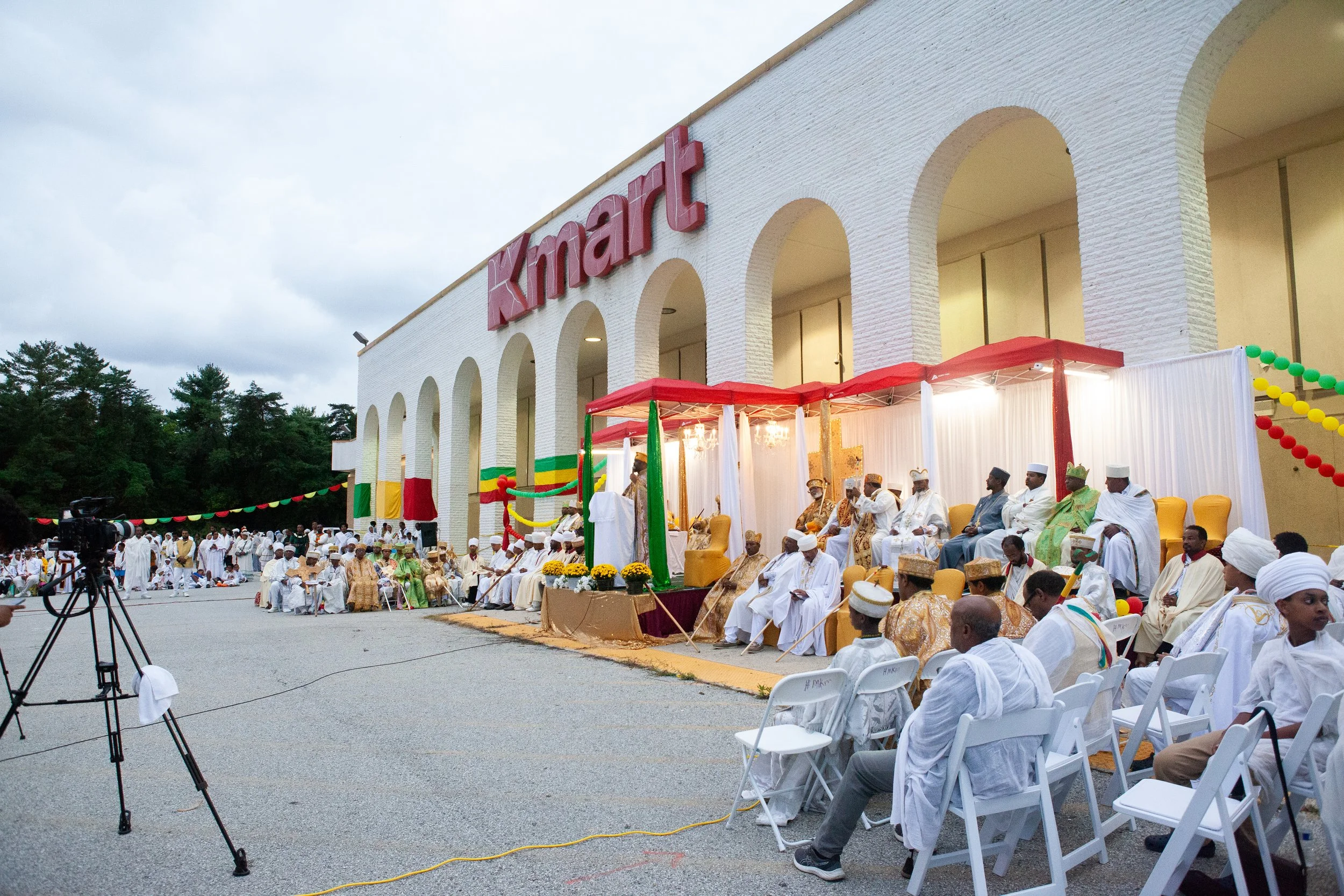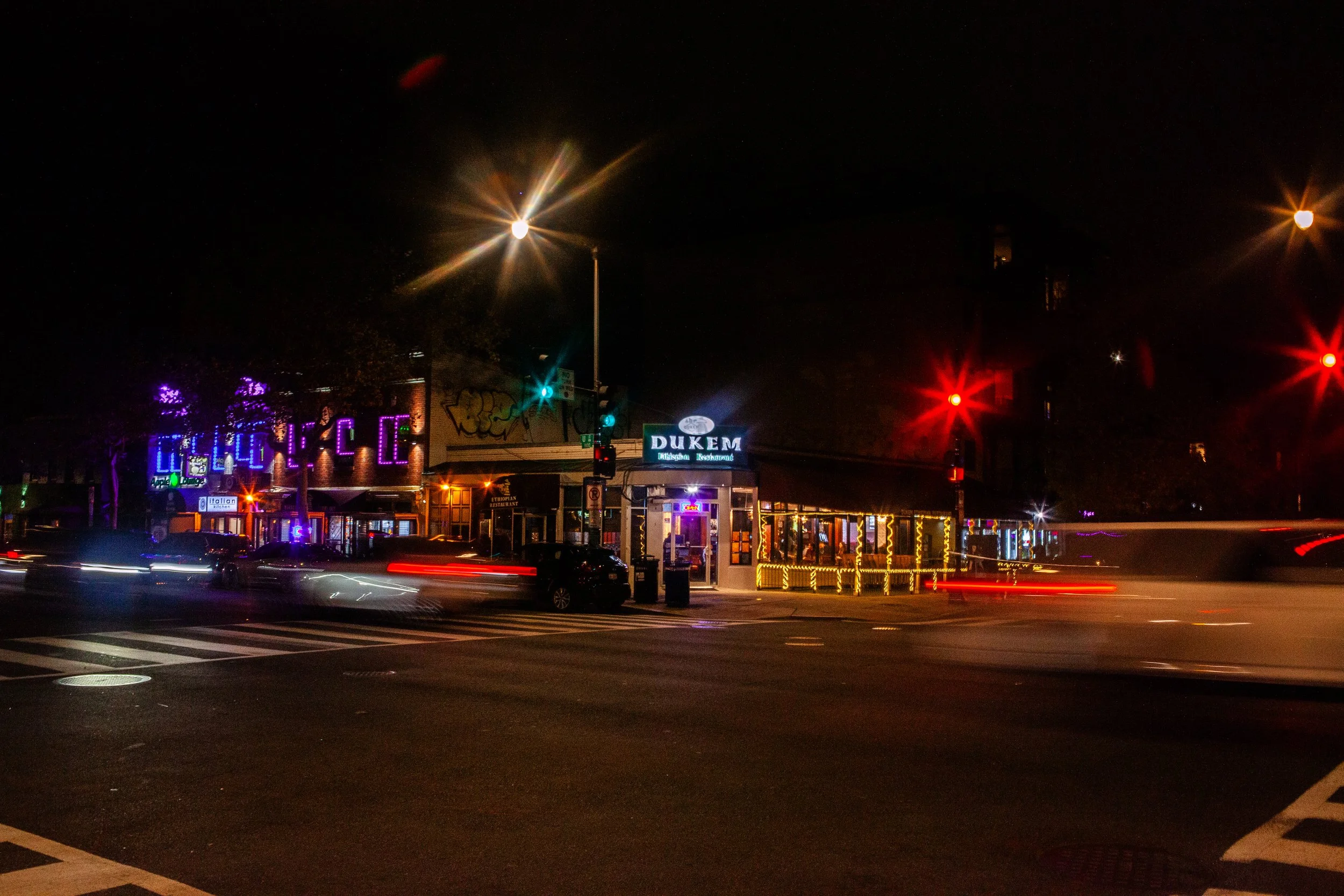Towards the end of September, Ethiopian Orthodox churches from all over the DMV gather in their respective locations to celebrate the annual holiday called Meskel, which translates to “cross” in the native language Amharic. This celebration that honors the finding of the cross of Jesus, takes place in wherever the community decides it can take up space. In the case of Hyattsville, Maryland, thousands gathered at a local Kmart parking lot, showcasing that no matter where this tradition travels, it will somehow find a safe place to land. The evening of the celebration culminates to a large bonfire, surrounded by the beating of drums and chanting of hymns. They have the space all to themselves with police safe guarding the premise.
There is a wide age range of those who are involved in the activities of the church, from generations that were born in the states to those that were born back home. Father Samuel Tesfaye Alemu, a priest that attended the Meskel celebration explains that “the young generation…they are fighting…to come up with two [cultures]”. Inevitably, a culture that travels far is bound to have its unique adjustments.
Nonetheless, for many, the church has been a central hub not only for worship, but a place where people can feel like they are back home again. This not only applies to those that have immigrated, but even those that were born in the US can feel the inherent sense of family as tea and bread is served throughout the congregation after a Sunday service. Tamrat Eyob has been going to Debre Meheret St. Michael’s Cathedral in DC for 23 years and says “it really does remind you of home, the way people are here…it’s so great”.


